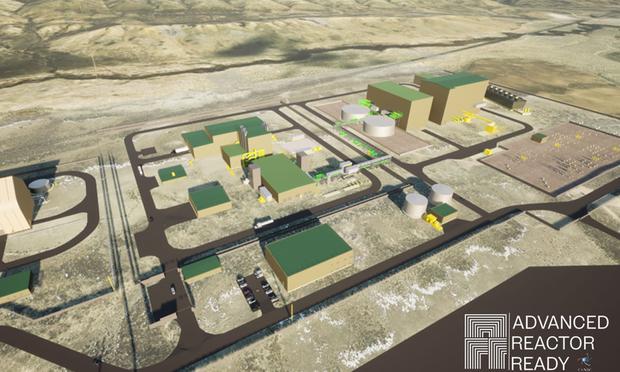The Rise and Fall of #NuScale: a nuclear cautionary tale
Kelly Campbell
October 29, 2024
"A decade ago, NuScale, the Oregon-based small modular nuclear company born at Oregon State University, was on a roll. Promising a new era of nuclear reactors that were cheaper, easier to build and safer, their Star Wars-inspired artist renditions of a yet to be built reactor gleamed like a magic bullet.
"As of last year, NuScale was the furthest along of any reactor design in obtaining Nuclear Regulatory Commission licensing and was planning to build the first small modular nuclear reactor in the United States. Its plan was to build it in Idaho to serve energy to a consortium of small public utility districts in Utah and elsewhere, known as #UAMPS.
"This home-grown Oregon company was lauded in local and national media. According to project backers, a high-tech solution to climate change was on the horizon, and an Oregon company was leading the way. It seemed almost too good to be true.
"And it was.
"Turns out, NuScale was a #HouseOfCards. The UAMPS project’s price tag more than doubled and the timeline was pushed back repeatedly until it was seven years behind schedule. Finally, UAMPS saw the writing on the wall and wisely backed out in November, 2023.
"After losing their customer, NuScale’s stock plunged, it laid off nearly a third of its workforce, and it was sued by its investors and investigated for investor fraud. Then its CEO sold off most of his stock shares.
"NuScale’s project is the latest in a long line of failed nuclear fantasies.
"Why should you care? A different nuclear company, #XEnergy, now in partnership with #AmazonCorp, wants to build and operate small modular #nuclear reactors [#SMRs] near the #ColumbiaRiver, 250 miles upriver from #PortlandOR. #BillGates’s darling, the #Natrium reactor in #Wyoming is also plowing ahead. Both proposals are raking in the Inflation Reduction Act and other taxpayer funded subsidies. The danger: Money and time wasted on these #FalseSolutions to the #ClimateCrisis divert public resources from #renewables, #EnergyEfficiency and other faster, more cost-efficient and safer ways to address the climate crisis.
"A recent study from the Institute for Energy Economics and Financial Analysis concluded that small modular nuclear reactors are still too expensive, too slow to build and too risky to respond to the climate crisis.
"While the nuclear industry tries to pass itself off as 'clean,' it is an extremely dirty technology, beginning with #UraniumMining and #UraniumMilling which decimates #IndigenousLands. Small modular nuclear reactors produce two to thirty times the radioactive waste of older nuclear designs, waste for which we have no safe, long-term disposal site. Any community that hosts a nuclear reactor will likely be saddled with its radioactive waste – forever. This harm falls disproportionately on #Indigenous and #LowIncome communities.
:For those of us downriver, X-Energy’s plans to build at the Hanford Nuclear Site on the Columbia flies in the face of reason, as it would add more nuclear waste to the country’s largest nuclear cleanup site.
"In #Oregon, we have a state moratorium on building nuclear reactors until there is a vote of the people and a national waste repository. Every few years, the nuclear industry attempts to overturn this law at the Oregon Legislature, but so far it has been unsuccessful. This August, Umatilla County Commissioners announced they’ll attempt another legislative effort to overturn the moratorium. Keeping this moratorium is wise, given the dangerous distraction posed by the false solution of small modular nuclear reactors. Let’s learn from the NuScale debacle and keep our focus on a just transition to a clean energy future–one in which nuclear power clearly has no place."
#EnvironmentalRacism #HoltecLies
#NuclearLies #TEPCOLied
#NoNukes #NoNukesForAI #Hanford #NuclearPowerCorruptionAndLies
